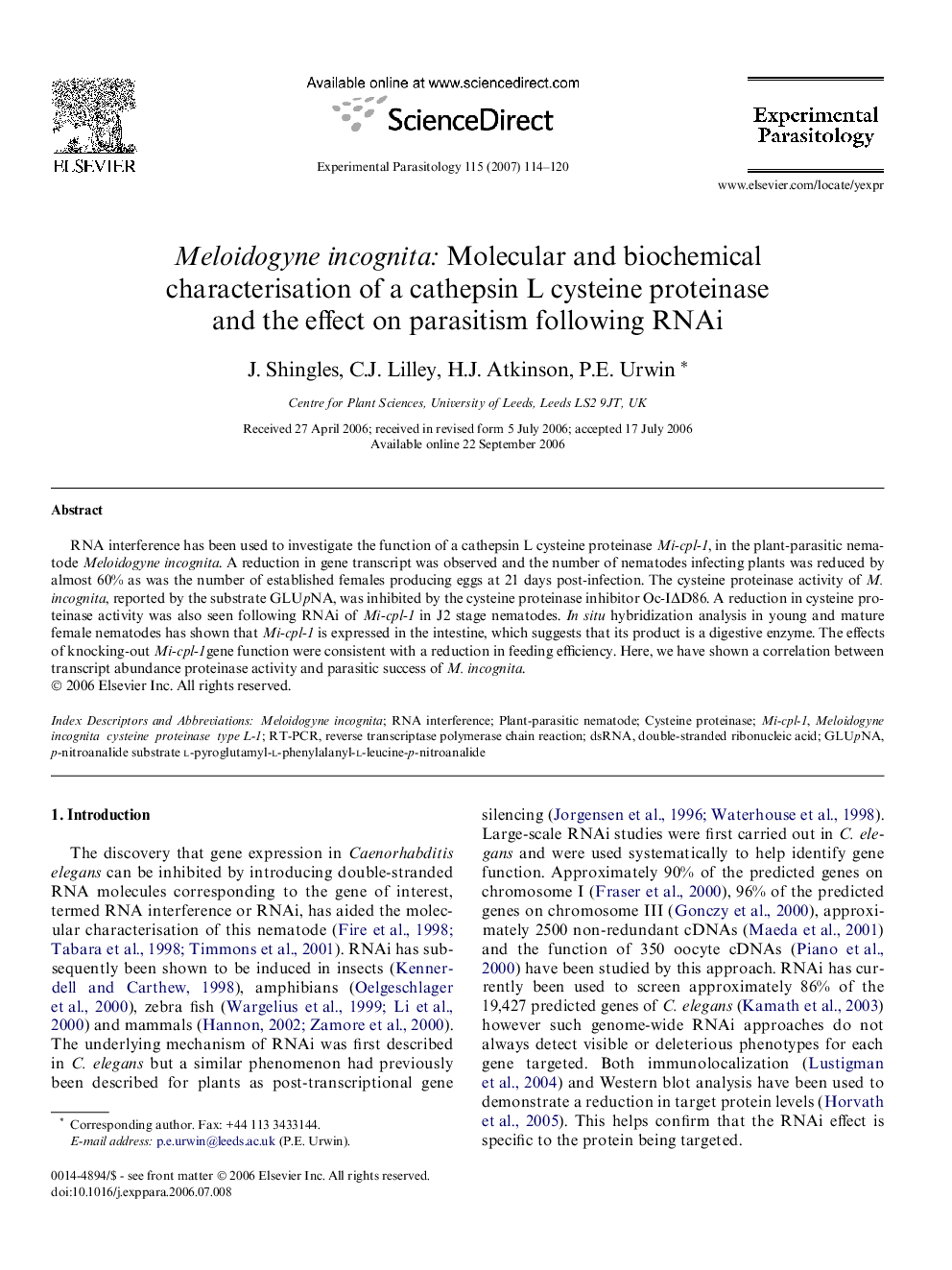| Article ID | Journal | Published Year | Pages | File Type |
|---|---|---|---|---|
| 4371848 | Experimental Parasitology | 2007 | 7 Pages |
RNA interference has been used to investigate the function of a cathepsin L cysteine proteinase Mi-cpl-1, in the plant-parasitic nematode Meloidogyne incognita. A reduction in gene transcript was observed and the number of nematodes infecting plants was reduced by almost 60% as was the number of established females producing eggs at 21 days post-infection. The cysteine proteinase activity of M. incognita, reported by the substrate GLUpNA, was inhibited by the cysteine proteinase inhibitor Oc-IΔD86. A reduction in cysteine proteinase activity was also seen following RNAi of Mi-cpl-1 in J2 stage nematodes. In situ hybridization analysis in young and mature female nematodes has shown that Mi-cpl-1 is expressed in the intestine, which suggests that its product is a digestive enzyme. The effects of knocking-out Mi-cpl-1gene function were consistent with a reduction in feeding efficiency. Here, we have shown a correlation between transcript abundance proteinase activity and parasitic success of M. incognita.
